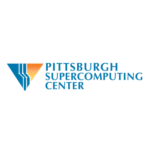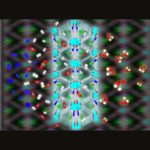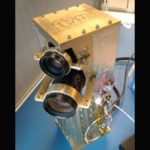The Pittsburgh Supercomputing Center, a joint research effort by the University of Pittsburgh and Carnegie Mellon University, recently received a $750,000 grant from the National Science Foundation, which will continue a lab-computer collaboration that accurately simulates communications between nerve cells and muscle cells. Stephen Meriney, professor of neuroscience in Pitt’s Kenneth P. Dietrich School of Arts and Sciences, […]
$750,000 Grant to Research of Nerve-Muscle Communication at Pittsburgh Supercomputing Center, Pitt
A $750,000 grant from the National Science Foundation will continue a lab-computer collaboration that accurately simulated communications between nerve cells and muscle cells. The project has immediate applications in treating a type of neurological disease called Lambert-Eaton Myasthenic Syndrome (LEMS). It also offers fundamental insights into how nerve cells communicate with muscle cells in health […]
HPE to Build Bridges-2 Supercomputer at PSC
NSF is funding $10 Million for a new supercomputer at the Pittsburgh Supercomputing Center (PSC), a joint research center of Carnegie Mellon University and the University of Pittsburgh. We designed Bridges-2 to drive discoveries that will come from the rapid evolution of research, which increasingly needs new, scalable ways for combining large, complex data with high-performance simulation and modeling.”
Pitt Researchers using HPC to turn CO2 into Useful Products
Researchers at the University of Pittsburgh are using XSEDE supercomputing resources to develop new materials that can capture carbon dioxide and turn it into a commercially useful substances. With global climate change resulting from increasing levels of carbon dioxide in the Earth’s atmosphere, the work could lead to a lasting impact on our environment. “The basic idea here is that we are looking to improve the overall energetics of CO2 capture and conversion to some useful material, as opposed to putting it in the ground and just storing it someplace,” said Karl Johnson from the University of Pittsburgh. “But capture and conversion are typically different processes.”
NASA to Launch University of Pittsburgh Supercomputer into Space
A novel supercomputer developed by a University of Pittsburgh team is set to journey to the International Space Station on May 1. The supercomputer will serve as a research “sandbox” for space-based experiments on computing, sensing, image processing and machine learning. “It will be “one of the most powerful space-qualified computers ever made and flown,” said Alan George, department chair of the Swanson School of Engineering’s Department of Electrical and Computer Engineering, who led Pitt researchers and graduate students on the project.”






